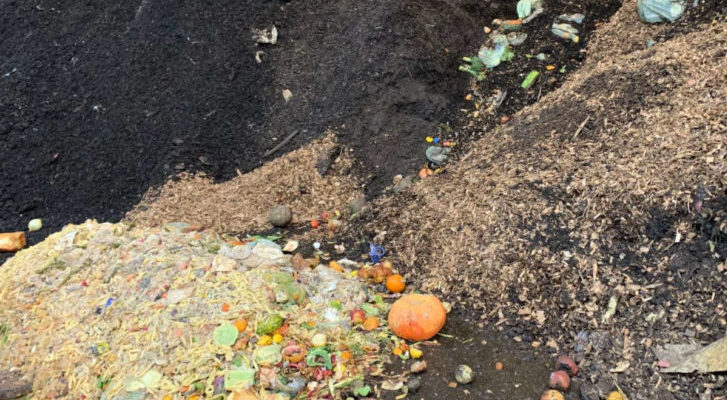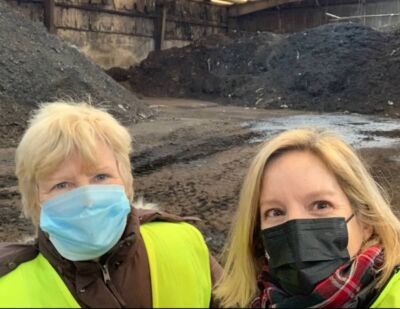NEWS
Where do Those Food Scraps Go?

Now that you’ve joined the Zero Food Waste Challenge and started diverting food waste from the incinerator, the question arises: where do those scraps go and how exactly are they broken down into compost? Whether you drop your scraps at the transfer station or have them picked up by a commercial hauler, all of Westport’s food waste is transported to one of two sites in Connecticut. Surprisingly, the two sites process the waste in completely different methods: either via aerobic (with oxygen) or anaerobic (without oxygen) breakdown and yield completely different end products! To learn more about one of these sites, Curbside Compost graciously invited Sustainable Westport to join a tour of New Milford Farms.
New Milford Farms, 35 miles north of Westport in New Milford, Connecticut, was the first permitted composting site in the state. The open covered facility is enormous with rows and rows of large piles of decomposing food waste mixed with wood chips in specific ratios to create the ideal carbon:nitrogen balance. The piles are intermittently turned over mechanically to promote oxygen penetration, necessary to support the naturally occurring microorganisms that breakdown the organic material. This is an aerobic process (in the presence of oxygen). Over the course of 12-16 weeks depending on temperature and moisture levels, the materials decompose and become increasingly refined. Heat is created by the breakdown of materials and can be seen rising off the piles as water sprays over other piles to help maintain adequate moisture levels. The last step in the process is sifting through a ⅜” screener to remove any remaining contaminants, with one exception that sneaks through the screen – PRODUCE STICKERS!! Compost from New Milford Farms is then packaged and sold to retail garden centers.

The second endpoint for Westport’s food scraps is Quantum Biopower in Southington, CT. In contrast, this facility employs an anaerobic process, and produces clean energy in the process! To learn more about Quantum Biopower and more specific details on anaerobic composting, click here.
Regardless of your food scraps’ final destination, composting is a fantastic way to decrease your community-produced greenhouse gas emissions while producing valuable end products. If you have not started yet, now is the time to join us! Learn all about composting and your various options here in Westport.